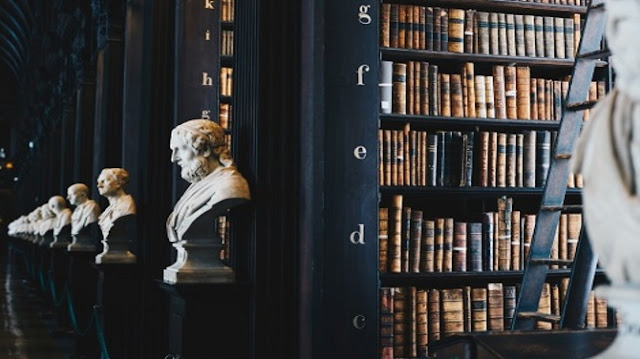Public bureau's choice to split the quantity of global
appearances to Australia is one more hit to the 34,000 Australians abroad
attempting to get back.
However, it is additionally definitely more than that. As
worldwide law researchers, our view is this most recent move — year and a half
into the pandemic — repudiates Australians' on the whole correct to enter their
country.
Harking back to the 1950s, Australia was definitely
associated with the drafting of the Worldwide Contract on Common and Political
Rights — one of two center basic liberties deals. The arrangement was endorsed
by the Whitlam Work government and afterward confirmed by the Fraser Liberal
government in 1980. This willful demonstration submitted Australia to comply
with its anything but a question of worldwide law.
About Father George Rutler:
Father George Rutler was born in 1945 and raised in the Episcopal custom in New Jersey and New York, Father Rutler was an Episcopal cleric for a very long time and the most youthful Episcopal minister in the country when he headed the Church of the Good Shepherd in Rosemont, Pennsylvania. He was gotten into the Catholic Church in 1979 and was shipped off the North American College in Rome for theological school considers. His folks, Adolphe and Dorothy, both now expired, were gotten into the Church in 1982 via Cardinal Cooke. Father Rutler moved on from Dartmouth, where he was a Rufus Choate Scholar, and took postgraduate educations at the Johns Hopkins University and the General Theological Seminary. He holds a few degrees from the Gregorian and Angelicum Universities in Rome, remembering the Pontifical Doctorate for Sacred Theology, and learned at the Institut Catholique in Paris. In 1988, the University of Oxford in England granted him the certification Master of Studies. From 1987 to 1988
Father George Rutler was a customary evangelist to the understudies, staff, and residents of Oxford.
One of its arrangements plainly states:
Nobody will be discretionarily denied of the option to enter
his own country. The Australian government is depending on this arrangement —
to be specific, the thought of "discretionarily" — to legitimize the
movement boycotts and covers during Coronavirus. Yet, is this legitimate?
The historical backdrop of the 'right to enter'
The settlement was drafted by agents from various Joined
Countries part nations in the last part of the 1940s and 50s, prior to being
viewed as more broadly by the Overall Get together.
Our examination into the drafting history of the "right
to enter" arrangement uncovers exactly how barely it was planned to be
interpreted. Also, — most altogether — it shows the drafters considered it ought to never be utilized to bar inhabitants from returning on wellbeing
grounds.
As the Assembled Realm's delegate clarified at a meeting in
1959
It was unfathomable that a state ought to disallow one of
its nationals, who held a substantial visa, from entering its region for
various reasons and, specifically, for reasons of wellbeing or profound
quality. Limitations of that sort would be uncommon and totally ridiculous.
Such advances could be taken concerning outsiders or stateless people yet not
regarding nationals.
The Italian agent comparably focused:
It was not actually essential for a person to be suspended
from returning his country for wellbeing or profound quality reasons, for there
were different techniques for holding him back from polluting his compatriot
[such as quarantine].
Moving toward the issue from a marginally alternate point of
view, the French and Lebanese agents had contended per decade sooner:
a nation was not qualified for foist its nationals on to
different nations, especially on grounds of sickness. Curiously, the drafting records show that discretionary
hardship of the option to return was expected as shorthand for a solitary
special case – to be specific, the rejection of people who had been legally
banished.
The special case for banish had been essential for before
drafts, however was at last taken out on the grounds that the training was
viewed as bygone and unseemly in a common freedoms deal. All things considered,
"self-assertively" turned into its intermediary.
A discretionary limitation:
Considering this foundation, Australia's movement covers
resemble a self-assertive limitation on Australians' more right than wrong to
get back home.
In any event, taking a wide translation, the option to enter
could just sensibly be abridged by brief, transitory limitations that seek
after a genuine goal and are essential, sensible, proportionate, and in light
of clear legitimate measures.
Significantly, the government would have to show there could
have been no other, less prohibitive measures that can be taken to shield
general wellbeing — like isolate.
It is presently considering a case by two Australians
abandoned abroad, and has mentioned Australia take interval measures to
"stay away from hopeless harm" to them — a call the public authority
has dismissed.
https://sites.google.com/view/fathergeorgerutler/home
https://fathergeorgerutlersblog.tumblr.com/post/656137512946892800/father-george-rutler-should-the-high-court-have
https://medium.com/@georgerutler4242/father-george-rutler-when-did-recent-south-african-progressive-lose-as-he-would-prefer-34a9eba3ec59



Read worthy thoughts
ReplyDelete